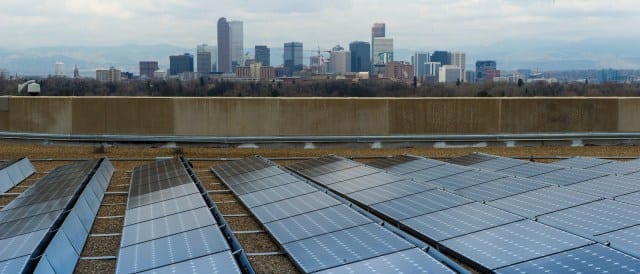Recently, Craig Morris discussed an article that misrepresented feed-in tariffs (FITs). He also spoke with the two people quoted in the article, one of whom felt misrepresented – while the other was a prominent German spokesperson for renewables. He found that people describing policies are actually often talking about the technology effects, which the policies in question do not change.
I met US-based German energy consultant Dirk Morbitzer in late 2012 at the premiere of the German documentary “Leben mit der Energiewende,” which – despite its title – is mainly about solar, not about the energy transition. And it paints a bleak picture for the solar sector if Germany reduces its FIT support. Morbitzer appears in it starting here as a neutral financial consultant from the US. He tells the German audience that solar is making wholesale power cheaper.
How different he sounds in US media. Morbitzer is quoted as an opponent of FITs not only in this recent article, but also in one published last summer. When I asked him last August whether he stood by the statement made in that article that feed-in tariffs are “not suitable for the US” and “net-metering is the best approach” there, he gave an explanation about solar as a technology, not about policy: “In hot, sunny areas, solar power production coincides with demand for air conditioning. Therefore, net-metering is producing some of the highest output when the sun is shining, thereby limiting the need for grid buildups.” Replace “net-metering” in that sentence with “solar,” and the statement makes sense.
Neither FITs nor net-metering shift the time of solar power production, so I asked Morbitzer to clarify the issue. “There is a tendency to overbuild with FITs [meaning that homeowners have solar arrays larger tthan needed to meet only their own demand], and that might result in additional costs for grid buildup.” Yet, when a power meter runs backwards under net-metering, solar power is also exported to the grid. What Morbitzer actually argues is that the best thing about net-metering for PV is that it keeps homeowners from building too much solar.
While Morbitzer cannot be accused of being a political activist, the second person quoted in the report from last year is Craig Lewis, a campaigner for FITs at the Clean Coalition, who said: “The article definitely misrepresents my position on FITs” (which, he say, is summed up well in this article). The Clean Coalition, he adds, sees a role for both net-metering and FITs because of the “tax implications of wholesale energy sales that most individuals are not prepared to face.” (Note: the tax issues are similar in Germany, but the Germans have never complained.)
But Lewis also conflates policy with technology when he says that “utilities are aggressively attacking net-metering programs because of the load reduction that comes along with the policy.” Again, we are talking here about the impact of solar, which remains the same whether funded by means of net-metering or FITs. US utilities attack net-metering because it is the main policy to promote solar. If the US had blanket FITs, they would attack that policy. What they actually oppose is photovoltaics.
What about Morbitzer’s main recommendation as a market analyst? “Industry should work with what they have in each country.” In other words, he addresses companies, and he wants businesspeople to stop talking about policy and get on with making money so he can do some consulting.
My recommendation? Those who want us to stop talking about policy and get on with business should set a good example and stop talking about it themselves. These folks simply distort policies too much in their descriptions, as I will illustrate further in a subsequent post.
Source: Energy Transition. Reproduced with permission.











